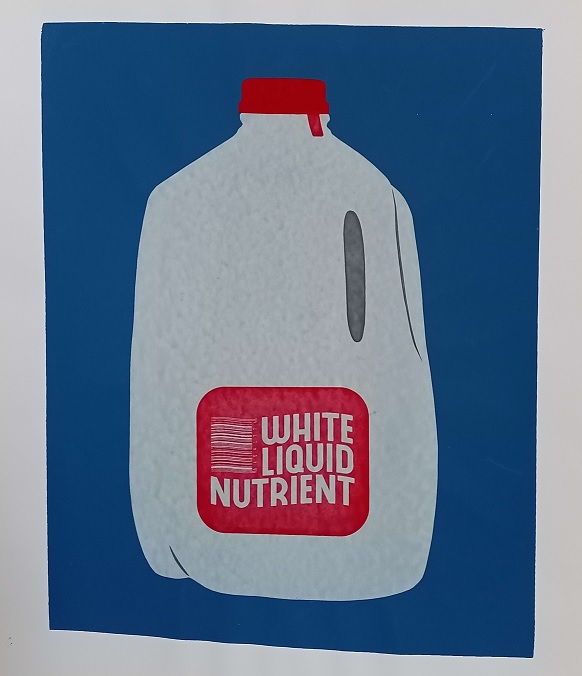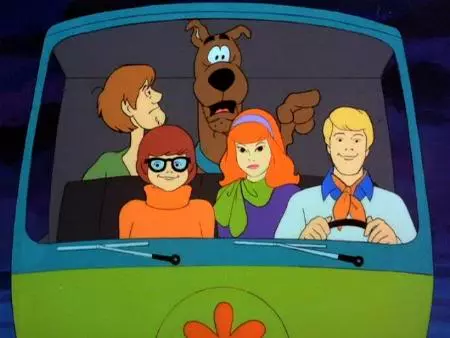Many people are now talking about the “death of the ad-supported internet model,” and I can only say that it can’t come quickly enough.
The main reason why it all switched to ad-supported is the massive costs of storing and streaming all that high-definition video. And for what? So I can see every pore on Joe Rogan’s face while he sits in front of the mic and talks for 3 hours?
Or so that some video game dweeb can read his essay about why an obscure JRPG is the height of postmodern art over 30 minutes of game footage. Or all the channels trying to imitate Kurzgesagt with shitty animation and information they gathered from browsing Wikipedia.
Face it. Most of this video is unnecessary. 99.9% of all possible information can be relayed through text, pictures, and the occasional sound file.
Furthermore, most video content creators are unnecessary too. I can just read about a laptop’s specs and the reviewer’s experience with it. I don’t need LinusTechTips to stare at me with his reptilian eyes while he destroys the inferior product with an oversized novelty mallet.
Most of what’s on YouTube and other video-heavy social sites is not insightful, not creative, not informative, not fun, not sexy, and honestly shouldn’t exist at all.
I mean, by that logic, 99.9% of all food is unnecessary. Why season your food when you can just have plain chicken, plain salad, etc? It’s just the nutritional content that matters, right?
There’s this thing in life called enjoyment. People like to enjoy things.
My current company makes mobile games. We’re supported entirely by ads, because even our IAPs are indirectly dependent.
Most of the Appstore and Play Store are like this btw, so those will go too.
And that would be amazing! All of our games are crap, all of the freeware is crap, it’s all garbage drowning out the 3-4 good, open source apps in each category. These are entire businesses and industries that don’t need to exist, don’t solve real problems, and one app at a time make the internet worse.
Oh tell me about it. I work in the content marketing industry. The whole field shouldn’t exist, and I hope ChatGPT just kills it. We made search engines crap with all our SEO and we churn out useless semi-plagiarized content.
I work in content marketing too; sounds like youre doing it wrong. There are absolutely causes that need professional help, and deserve it.
Kinds sounds like youre just telling on yourself here, but 🤷♂️
nope. Content marketing is poison and shouldn’t exist.
The world would’ve been a much better place if mobile apps had a minimum price of $1 USD.
Your entire argument applies to books as well.
It’s a bad argument.
Most books are probably crap (Sturgeon’s law) but most of what is in books can’t be relayed in another way.
Books (or online text) allow for thoughts or information to be collected in a way that is informationally dense yet compact while also serving as a (virtually) permanent physical record.
That’s the advantage that books have over relating information orally.
In contrast to books or text, videos are informationally sparse yet very large.
But maybe I missed something, please feel free to elaborate on your point.
So you’re argument boils down to “the presence of bad apple means we should toss the whole bunch”
Must be a police library…
This is an awful take, books can be relayed as audio, ever hear of audiobooks? I guess fuck blind people right?
Orally doesn’t mean audio. Orally means in person communication.
Audiobooks are fine. I’d say still inferior to actual books because they require equipment and a large time commitment. Great for accessibility however.
Additionally, in your rush to paint me as some blind people hating ableist you seem to have forgotten that Braille is a thing.
It would actually be interesting and informative to hear from some actual blind people about which they prefer and which mode of delivery — audio or Braille — allows them to process information faster.
Audiobooks and podcasts are great for me because I use them while running. I’m learning a ton about history lately, but sometimes it’s nice to read a novel while exercising and obviously cannot hold a book.
I’m sure video plays a similar role for a lot of people’s use case. Particularly younger generations likely engage better with it due to ubiquitous presence as they grew up. Though that may have been bad for their attention spans with things like tik tok.
Books (or online text) allow for thoughts or information to be collected in a way that is informationally dense yet compact while also serving as a (virtually) permanent physical record.
What is the difference between a text file and a video file in the digital space? You’re argument seems invalid at it’s core.
The difference is a 1000 word article requires maybe 500kbs to be stored and the size of a video of someone reading that article in glorious 4k60fps even with the best compression algorithms in the world would be still be several orders of magnitude larger.
That data has to be stored somewhere. Those datacenters require energy and maintenance which is neither cheap nor very good for the climate.
But there’s two points I’m trying to make and I may have conflated then somewhat.
- Text is the superior mode of knowledge transfer. It’s easily searchable (more so in digital form but even print allows for tables or content and indexes), can be re-read or scanned through easier than scrubbing through a video file.
- The vast majority of video content online is vapid and doesn’t need to exist either at all or just in video form. Short clips of concerts on Instagram, video reviews of things that don’t require visual demonstrations, essays read over what is essentially archival footage, video podcasts that are two hours of a group of guys sitting around a table…
If I was curating videos 99% of TikTok and Twitch streams wouldn’t make the cut because they seem utterly pointless to me. But they are both massively popular so I think it’s better to just let people produce content and what’s popular will sort itself out. It’s good to have choices.
Probably not unpopular.
99 percent of what’s on youtube doesn’t appeal to a person.
Problem is that 1 percent that appeals to the person varies from person to person. (Still I’d say above 50 percent of videos on YouTube, only 40 percent or so get 300 views.)
Well. This is truly an unpopular opinion. I do care about well made videos and most of the content I watch on youtube could not be conveyed in a form of text and pictures. I do also appreciate the videography, quality of video production. I pay for youtube gladly for the many hours of content I view monthly.
I mostly watch videos of people creating physical things like furniture, cars, jewelry etc. I find most of the videos insightful, creative, informative and fun but not sexy. I guess its up to the viewer to train the algorithm to find the value on the platform.
You may enjoy one of my favorite YT channels, Clickspring. I’m not affiliated in any way; I just saw a few videos years ago and really enjoyed them. This is part 3 of a build, but it gives a good idea of what he’s about. https://youtu.be/KXzyCM23WPI
Oh he makes awesome videos! My counter recommendation would be ”Inheritance Machining”. Dude creates quite a lot of quality content and really seems to enjoy precise machining. :)
Most of what’s on YouTube and other video-heavy social sites is not insightful, not creative, not informative, not fun, not sexy, and honestly shouldn’t exist at all.
May I offer you some good channels in these trying times?
Vsauce
Veritasium
TedEd
CGPGrey
Exurb1a
and a lot more that I don’t have on the top of my head
Tech Ingredients 3Blue1Brown NightHawkInLight Applied Science
I agree.
I still hang around on some oldschool forums (like, UBB or VBulletin) for niche topics because honestly it’s just way easier both to contribute and obtain information in the form of text or maybe text plus a couple of pictures. I don’t need a 15 minute video with intro, outro, cringe music, multiple pleas to like-comment-subscribe, and a plug for the Patreon. All I need one .jpeg that shows me where all the fucking bolts are hidden on the machine I’m working on. Etc.
It’s infuriating that this idea that “everything is easier through video” took such hold. Even in the corporate context. We now have “instructional design professionals” advising corporations to ditch manuals and handbooks in favor of videos. The company I work for took that to heart, and everything is a video.
Oh, you need quick info on how a small part of a process works? Watch this 3-hour video the CEO made that touches on every process in the company and no there isn’t a table of contents with timestamps.
I started using some software they bought at work and I hate it. They do not supply a user’s manual. You can watch their videos or pay them for training. Even clicking help in the program just takes you to their videos webpage. It’s infuriating to me that they pay an outrageous (in my opinion) amount of money to license software and the company can’t even be bothered to provide a manual. Software training videos are worthless to me.
Totally agree. Video has really gotten out of hand.
Personally, I hate how so much instructional material (of any kind) is posted in the form of YouTube videos. The same information could be posted in a far more compact and succinct form as a combination of text and still images. I can read far faster than most of these video “instructors” are able to convey useful facts. Plus, with a text, I can skip forward or back, and re-read key sections easily, without having to use a damn seek bar.
Also, does it not occur to these video posters that, by posting everything to YouTube, you’re putting all of your eggs in the same basket? YouTube may use multiple huge datacenters around the world, but how much of that video data is actually backed up? If a given datacenter is destroyed by a disaster, it would take a significant chunk of YouTube content with it. I’d much rather have the same information (in text form) spread across multiple, unrelated websites scattered around the world.
I agree to a point. In many cases, text would suffice for instruction.
Certain topics of instruction benefit from well done video, though. Like, installing a lift kit. Yeah you could draw diagrams or use photos but video can give more spatial context of what fits where and what it all looks like from different angles. If it’s done properly.
The problem is, it’s so easy to make terrible instructional videos that don’t show you any more context or information than a bad picture while also taking up more of your time to determine it is a bad video.
My biggest pet peeve is that the creators have an incentive (or think they do) to yap on about introductory or irrelevant things for a ridiculous amount of time before getting to the point of the video, the stuff I’m there to watch. It drives me absolutely bonkers. Any time I find a video that is telling me how to do a thing within 15 seconds I heap praise on them in the comments. It doesn’t happen often.
Software training videos are the absolute worst of the bunch. Watching videos while working with the software is a pain in the ass and I absolutely hate watching the same parts over and over again if something doesn’t make sense. Give me a user’s manual any day. They can shove their videos.
Personally, I like the car repair videos on YouTube. I’ve saved hundreds on repairs, and while it wasn’t always as easy as the video would make it seem (don’t try to drop a steering column by yourself, if you can help it), I feel that the videos were far more helpful than text and pictures.
I agree with pretty much your entire shpiel except that all this HD video streaming is the direct cause of the ad supported internet. You think if YouTube had never done it’s business all over the internet we’d just have unobtrusive banner ads advertising porn or other web services still??? The internet could still be bulletin boards and geocities fansites in 2023 but the ads would look exactly the same.
Talk shows and podcasts rarely need video. I often prefer podcasts because they’re made for audio, rather than similar style videos where they seem to want to do something visual just because they can, not because it enhances the experience.
Work meetings don’t need video either, especially not a video feed of every single participant.
Yeah and the internet is unnecessary too, you should get off it.
um, thats a fish.
edit: its a memmy issue. the correct link opens in thunder.
I totally get where you’re coming from about the whole ad-supported internet thing. Totally not cutting it. I agree, most of the time, text, pics, and sound from podcasts, for example, can do the trick.
But, here’s the curveball: AI is changing the game. While I’m on board with your views, AI-generated stuff is kinda shifting my perspective. It’s pumping out texts and images that might not always be accurate, which is messing with the reliability of plain old text-based info. There’s this flip side where videos, despite the AI advances, are tougher for it to fake convincingly. So, oddly enough, if you’re after solid info, videos might be the way to go in this wild AI era. Old information though that was posted before this AI push, still the way to go.
It might make more sense if you look at it as sharing experience rather than information. Video is a more empathetic medium that people can connect with and understand more complete experiences through. Another thing to consider is the desire for infotainment more than information. People are made to learn things without necessarily understanding why and infotainment shows are a good way to connect with them in that. Like Mr. wizard, Bill Nye or Beakmans world, making information and learning fun, because the core content is itself not sexy or interesting but is still real and qorth informing some people of. I do generally agree with the idea of TMI in the marketplace, though. That’s how we ended up with the alternative facts -> fake news -> alternate reality pipeline for the world’s reactionaries over the last couple decades of social media influence.
Benn Jordan is a musical artist (The Flashbulb), and a guy I respect a lot and I think he has a good take on this subject












